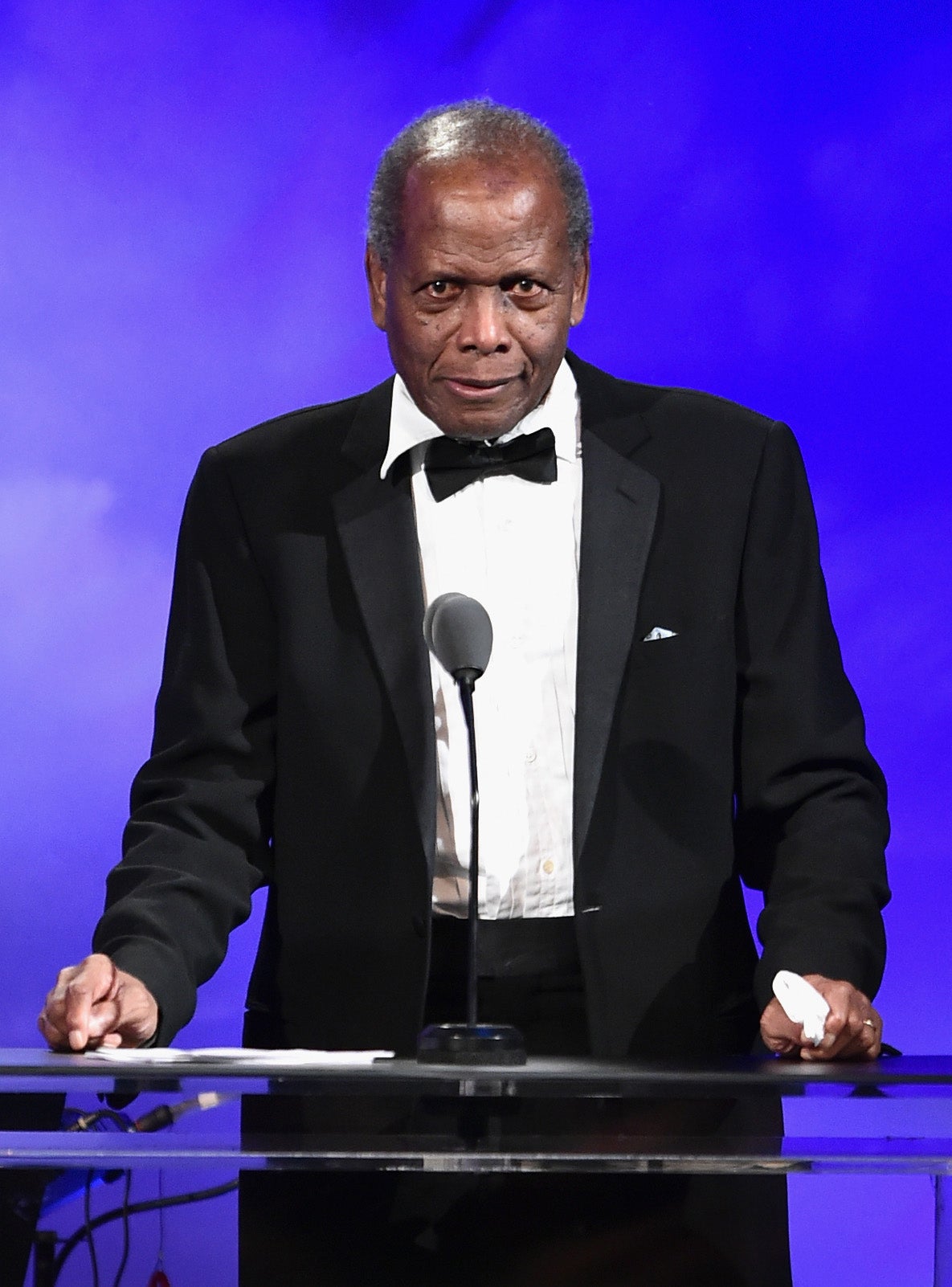
This article originally appeared in PEOPLE.
Legendary filmmaker, activist and human-rights trailblazer Sidney Poitier can now add “nonagenarian” to his list of accomplishments.
The two-time Academy Award winner turned 90 on Monday, and celebrated the milestone with friends and family, including his wife, Joanna Shimkus, whom he married in 1976, as well as six daughters, Beverly, Pamela, Sherri, Gina, Anika and Sydney. He also has eight grandchildren and three great-grandchildren.
Poitier, who made a career out of defying expectations, began his life beating the odds. The actor was born two months premature in Miami in 1927 to a pair of poor immigrant farmers from the Bahamas, and the likelihood of his surviving was so remote, his father returned home with a shoebox in which to bury the tiny baby.
But young Poitier survived, and within months, his parents returned home to their farm on Cat Island in the Bahamas. There was no electricity, running water or paved roads, but the island became a tropical playground for the actor as a boy. After a stint in Nassau, Poitier moved to Florida to live with his brother when he was 15. He eventually made his way to Harlem, washing dishes to earn a living.
After serving in the Army, Poitier joined the American Negro Theater, trading janitorial services for drama training. He eventually got enough notice to make it to Broadway, kicking off his stage career with a role in Lysistrata.
His film career was slower to start. Poitier gained popularity playing Walter Lee Younger in the 1961 film adaptation of Lorraine Hansberry’s A Raisin in the Sun, but it wasn’t until two years later, when he starred as Homer Smith in Lilies of the Field, that Poitier was recognized as a pre-eminent actor. The role earned him an Oscar for Best Actor, making him the first African-American man to win the award.
Poitier starred in a trio of iconic and politically pertinent films in 1967: To Sir With Love, In the Heat of the Night and Guess Who’s Coming to Dinner. In Guess Who’s Coming to Dinner, Poitier starred opposite Katharine Hepburn and Spencer Tracy as a black man in love with a white woman. Remarkably, the film debuted the same year the Supreme Court legalized interracial marriage in the landmark case Loving v. Virginia.
Subscribe to our daily newsletter for the latest in hair, beauty, style and celebrity news.
Poitier insisted on playing his characters with dignity, even changing a critical sequence in his film In the Heat of the Night (seen below) to meet his standards. In the original script, Poitier’s character, Det. Virgil Tibbs, fails to react when a white suspect slaps him in the face. The actor insisted on slapping the suspect back. “I go in front of a camera with a responsibility to be at least respectful of certain values,” Poitier told the Museum of Living History about the film. “My values are not disconnected from the values of the black community.”
Poitier stuck to his principles offscreen as well, becoming an active participant in the Civil Rights Movement. He welcomed well-known activists to his home, traveled with fellow activist Harry Belafonte to the south for Freedom Summer and stood alongside protestors for Rev. Dr. Martin Luther King’s 1963 March on Washington. He would also attend Dr. King’s funeral five years later.
Craving more artistic freedom, Poitier joined with Barbra Streisand, Paul Newman, Steve McQueen and Dustin Hoffman to form the First Artists Production Company in 1969. Working for his own production company allowed Poitier to experiment with directing, leading to his work with Bill Cosby in the comedy classics Uptown Saturday Night (1974) and Let’s Do It Again (1975). But his most famous directorial role came with 1980’s Stir Crazy, in which Gene Wilder and Richard Pryor play wrongly convicted men trying to escape from prison.
After establishing himself both in front of and behind the camera, Poitier collected a bevy of honors ranging from lifetime achievement awards – including a 2002 honorary Oscar — to becoming a Knight Commander of the Order of the British Empire in 1974. Scaling back his film commitments allowed Poitier to publish three autobiographies and a novel, Montaro Caine (2013). He also served as the Ambassador of the Bahamas to Japan from 1997 to 2007.
Poitier, who has not appeared onscreen since 2011, received the lifetime achievement award at the 2016 BAFTA Awards, but was unable to travel to London to accept the award due to health concerns. Instead of crossing the pond, Jamie Foxx and Poitier’s daughter Sydney Tamiia Poitier presented the actor his award at his Los Angeles home.
“Today my cup runneth over because I am here with my daughter and the future filmmakers of the world in celebration of this wonderful art form,” Poitier told the BAFTA audience via video. “To my family, my life force, I am nothing without you. And all of you, thank you for your warm embrace and this extraordinary moment and memory I shall cherish.”
